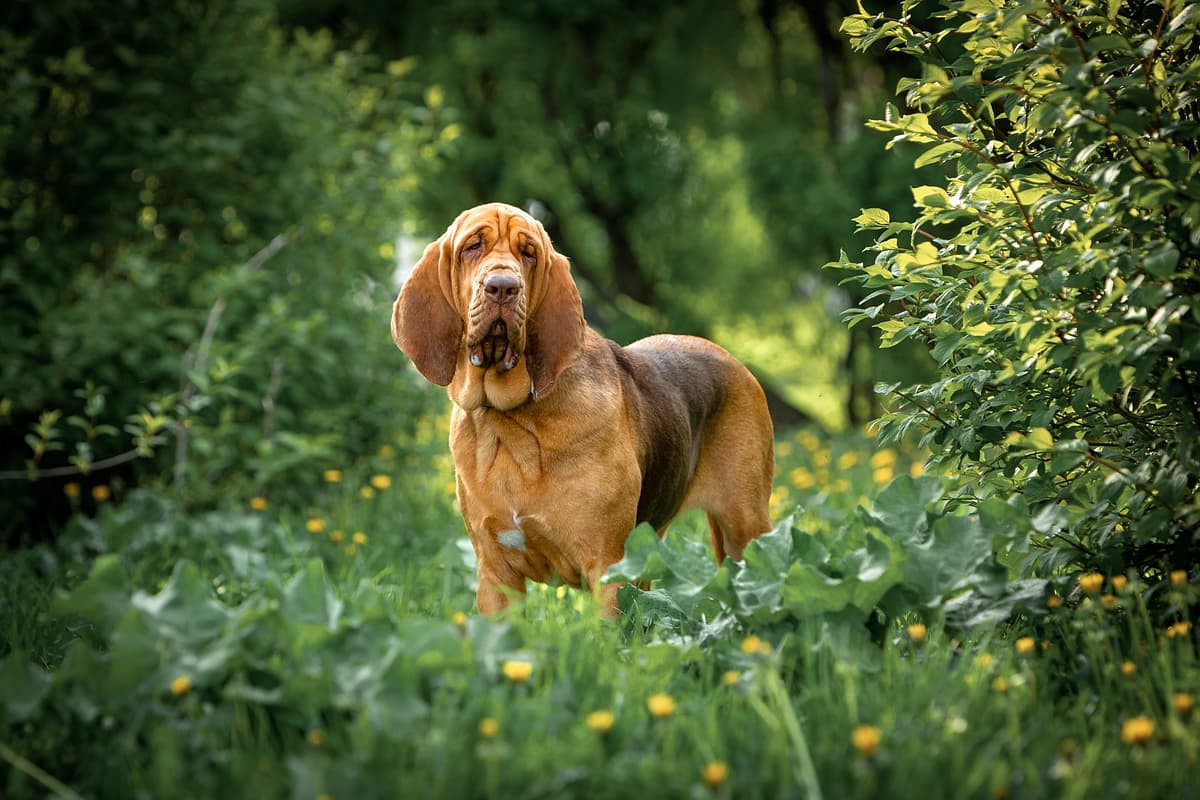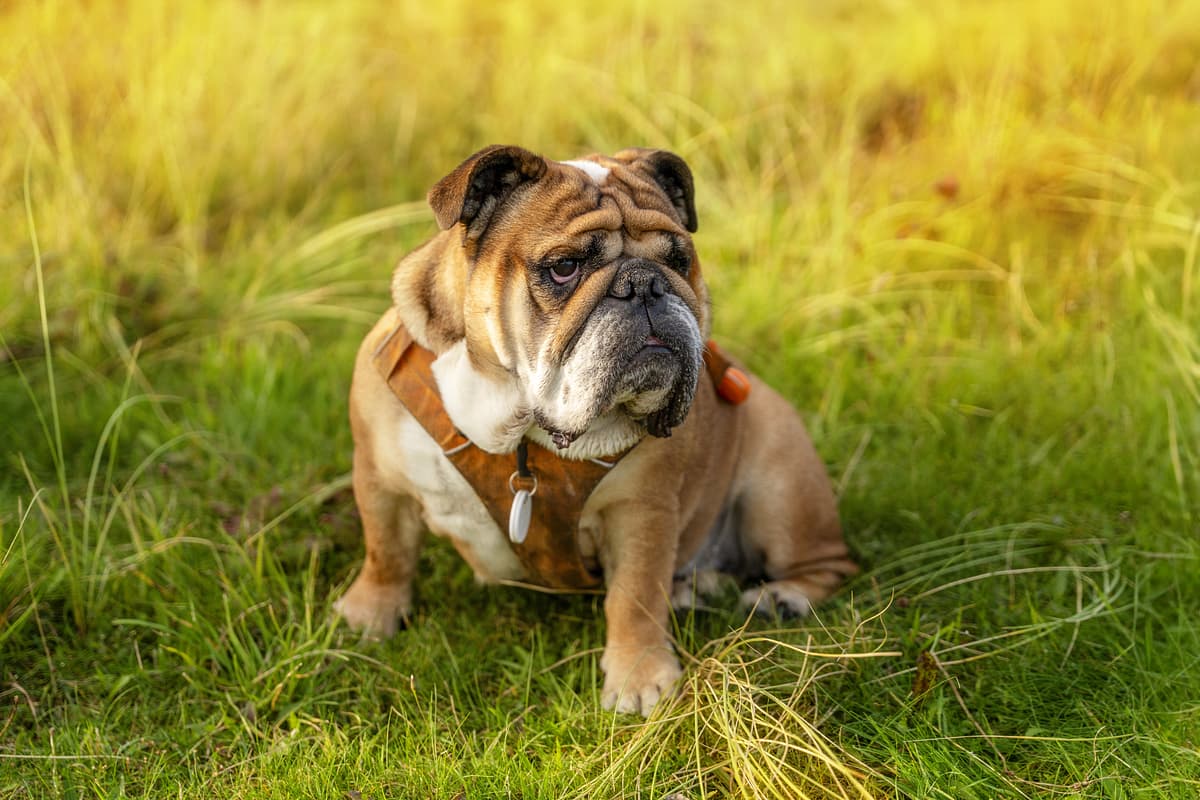Bloodhound vs English Bulldog
Discover the differences between Bloodhound and English Bulldog to make the best choice for your situation.
Try different breeds

Bloodhound
A gentle, affectionate companion with an unmatched sense of smell and determination. Loves adventure and thrives in active families who appreciate a loyal, sensitive dog.

English Bulldog
Stocky, courageous, and affectionate, this breed charms with its wrinkled face and calm nature. Loyal and gentle, it thrives as a loving family companion.
Quick comparison
Large
41–50 kg
Short, dense
10–12 years
36–45 kg
High energy
Medium
23–25 kg
Short, smooth
8–10 years
18–23 kg
Low activity needs
Personality & behavior
Compare the personality traits and behavioral characteristics of both breeds.
Bloodhound
Gentle and sociable with people and dogs
Independent thinker, not always eager to please
Needs regular activity and outdoor exploration
Enjoys games but not highly boisterous
Struggles with change and new environments
English Bulldog
Affectionate and gentle with family and children
Learns basic commands with some patience
Prefers lounging over vigorous physical activity
Enjoys play but tires fairly quickly
Adjusts well to most living environments
Care needs
Exercise, grooming, and daily care requirements
Bloodhound
Hip dysplasia, ear infections
English Bulldog
Brachycephalic syndrome, skin fold infections
Suitability
How well each breed fits different living situations and families
Bloodhound
Not ideal
Bloodhounds can be stubborn and require patient, consistent training from experienced handlers.
Poor fit
They are large, vocal, and need space, making small apartments challenging.
Good companion
Their stamina and curiosity suit active owners who enjoy long walks or hikes.
Gentle but strong
They are usually patient but can accidentally knock over small children due to size.
Generally friendly
Bloodhounds tend to get along with other pets if socialized early.
Prone to distress
They dislike being alone for long periods and may develop separation anxiety.
English Bulldog
Good option
Easygoing, low-maintenance nature suits owners with limited dog experience
Excellent fit
Moderate exercise needs and calm demeanor work well in small living spaces
Not ideal
Low stamina and breathing issues make them unsuited for high-activity lifestyles
Very suitable
Gentle, patient, and tolerant with young children when properly socialized
Usually compatible
Generally sociable but may need guidance with other pets, especially dogs
Not recommended
They struggle with long periods alone and are prone to separation anxiety
Breed strengths
What each breed excels at and their best qualities
Bloodhound
- Exceptional tracking ability
- Gentle and patient with children
- Highly intelligent scent hound
- Generally friendly with other dogs
- Loyal and devoted to family
English Bulldog
- Affectionate with family members
- Generally good with children
- Low exercise requirements
- Minimal grooming needs
- Adaptable to apartment living
Challenges & considerations
Potential challenges and considerations for each breed
Bloodhound
- Prone to stubbornness during training
- Requires extensive daily exercise
- Can be difficult to manage off-leash
- Tends to drool excessively
- Prone to ear infections due to long ears
English Bulldog
- Prone to respiratory problems
- High risk of overheating
- Susceptible to skin infections
- Can be stubborn during training
- Tends to drool frequently
Ready to choose your perfect breed?
Learn more about each breed or compare other breeds to find the perfect match for your lifestyle.
Discover more helpful tools
Make use of our other free tools to get the most out of your pet experience
